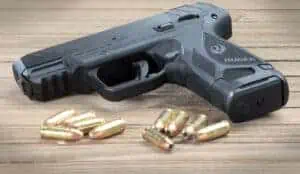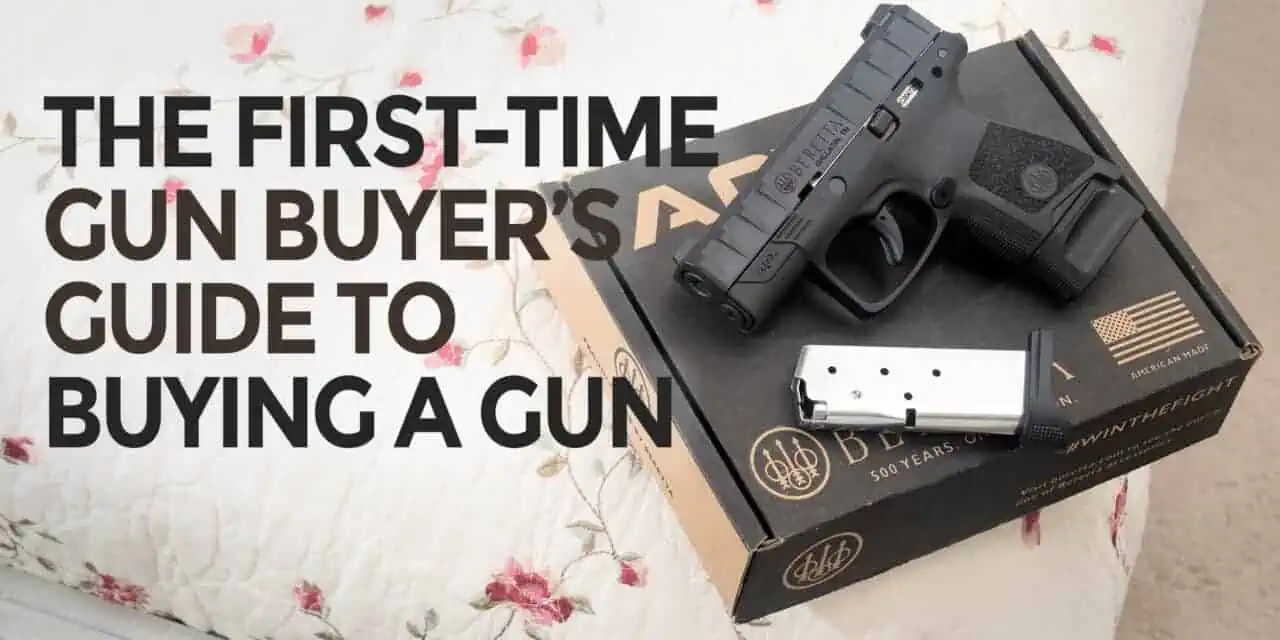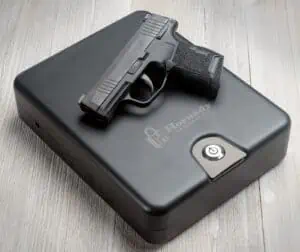First Time Gun Buyer? Start Here.
This is the time of year when people think about giving gifts to the ones they love, which means that some people think about buying their first gun. With that in mind, here are a few tips for all the first-time gun buyers out there.
Buying A Gun Takes More Time Than You Think
There are some politicians out there who will tell you that it’s easier to buy a pistol than it is to buy a book. Not to mince words, but those politicians are 100% wrong. I buy a lot of books, and to date, I haven’t needed to pass a background check in order to buy the latest technothriller.
Everyone who purchases a gun from a legitimate firearms dealer needs to be able to pass a background check before they can take their gun home. Every transaction, every time. In some states, no background check is needed at the time of sale because the purchaser has a valid concealed carry permit. In those states, the vetting and background checks needed to obtain the concealed carry permit are considered a valid alternative to the check run at the time of sale.
Another thing that happens every time you buy a gun is that you’ll need to fill in your personal information on a Form 4473. This is a form that the Bureau of Alcohol, Tobacco, Firearms, and Explosives uses for two purposes. The first is to make sure you’re eligible to own a firearm. The second is to provide a record of the sale. A government-issued ID is required for buying a firearm; that information is copied down on the 4473. I have seen more than one first-time gun buyer make the mistake of not bringing their driver’s license with them when they buy a gun, resulting in a delayed sale.
You Buy Guns For You, Not Someone Else
There are two Ruger 10/22 rifles in my gun safe that I have gifted to my sons. Legally, however, those guns are still mine, as my sons aren’t 18 yet and cannot own a gun here in Florida. If you’re thinking about buying a gun for a loved one this holiday season, be aware that the person who will legally own the gun needs to be the one who fills out the Form 4473 and prove that they are able to do so in the eyes of the law. Buying a gun for someone who is not legally able to own a gun is big, BIG no-no (as in felony-sized no-no), so don’t do it. Ever.
In addition, there’s a very good chance that the gun you’re thinking about buying for someone else isn’t quite what they wanted. The best way to handle this is to have them fill out the paperwork themselves and buy their own gun. It’ll be better for you in the short term (they get the gun they really want, not the gun you want them to have), and also in the long term (you can be certain neither of you are going to jail for an illegal gun purchase).
Smaller Is Not Not Always Better

In 9mm caliber and above, FMJ ammo (left) is best for practice, JHP ammo (right) works best for self-defense.
Deciding to take responsibility for your own protection and look for a concealed-carry pistol is one of the most adult decisions you will ever make. It means you understand that you are ultimately responsible for your safety. However, most small pocket pistols are not for first-time gun owners. They’re hard to control and hold, and they pack a powerful punch in a small package. In addition, they are not easy to shoot on a regular basis, which means you’re not going to practice with them as much as you would with a larger gun in the same caliber. All the firepower in the world does you little good if you can’t hit the target.
Practice Makes Perfect, and You’re Not Perfect Yet
The uncomfortable truth all gun owners need to face is that we are not as good a shot as we think we are, especially under stress. You may go the range each week and punch a nice, ragged hole in the target with careful, aimed shots. This sort of practice definitely helps with problems such as a trigger jerk, but it does little to help with the adrenaline dump you’ll feel in a defensive gun use. Mixing in real or artificial stress into your firearms practice, such as a shot timer or participating in a practical shooting match, will have a profound effect on improving your accuracy when it matters most.
You Buy Guns For You, Not Somebody Else (Part Two)
I recommend that first-time gun buyers go to an indoor range that has guns available to rent and try out a wide selection of guns before they make a buying decision. A range will also typically have a professional instructor who can help someone find a gun that suits them best. A snub-nosed .38 with pink grips might be the best gun for your wife, but let your wife come to that decision, not you.
Guns Are Not Talismans Of Self-protection
Access to a firearm does not make someone safe anymore than access to a piano makes them a musician. What actually makes someone safe is having access to a firearm and also having the will and skill to use it effectively. If you’re going to buy a gun, make sure you also have the commitment to learn how to use it well. Having the good feeling that you own a firearm for self-protection is good. Having that good feeling, and the sure and certain knowledge that you can use it effectively is even better.
Safety First, Second, And Last
Keep your gun so its safe and accessible at all times. Here’s a hint: Underneath your bed, unloaded, in its original box is neither safe nor easily accessible. Here in Florida, it’s against the law to store guns so that a child can have easy access to them. For this reason, I have quick access gun safes both in my car and in my home which prevents my sons from gaining access to my guns. In addition, if you carry concealed, get a good quality holster which covers the trigger of your pistol and doesn’t present other safety hazards as well.
Stop Believing The Myths
Believe me, there are plenty of myths out there about guns. For instance, no, snake shot in a .38 is not the last word in defensive firepower. Racking a pump-action shotgun will not make a determined attacker run away in fear. “Handgun stopping power” is an oxymoron, so if you’re hoping for a one-stop shot with your defensive pistol, you’re almost certain to be disappointed. As a result, practice with your pistol so you can make rapid, accurate hits on-demand and in stressful situations.
Welcome To The Ranks Of American Gun Owners!
Congratulations on becoming a first-time gun buyer. The Second Amendment is there for a reason, and choosing to (safely) own a firearm can be a life-changing decision and also a life-affirming decision. I have many, many gun-owning friends who have found new confidence in life because of the confidence they have gained knowing their self-protection needs are covered because they took the time to learn how to use their new gun. You can have that confidence as well. All you need to do is go to the range and be prepared to learn to shoot, which, coincidentally, is a lot of fun. It is also a cornerstone of what makes America, America.
If that’s not a win-win-win situation, what is?



